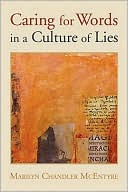The Forest of Arden
A Transforming Power in Shakespeare's As You Like It
[Critical Dialogue Essay written for a Western Literature class]
In his critical paper “No Exit from Arden,” Ralph Berry claims that the Forest of Arden does not act as a restorative power on the hostile relationships in William Shakespeare’s As You Like It. Berry concludes, “The idyll of Arden is an idea as much under fire as the denizens of the forest; and the final path that leads away from forest to court is a change of milieu, not a way out of those problems.” However, I contend that rather than remaining unchanged, the characters’ relationships are transformed at play’s end – Arden helps them to overcome their shortcomings, reverse their bad fortune, and see the world through different eyes.
First, Berry argues “that Arden is no paradise.” This is correct. Arden is not a place where animals and humans coexist peacefully. Indeed, a poisonous snake and a lioness threaten Oliver’s life. Yet, this does not mean that Arden cannot transform the characters of the play. Rather, the very fact that it is not a paradise forces them to experience situations that test their character, restore their broken relationships, and allow them to return to court with a better understanding of their world.
Second, Berry writes that the reason for the character’s hostile relationships is an “underlying recognition that other people’s qualities parallel and subtly menace one’s own…a simple will to dominate.” This is correct also, but if the characters abandon these perspectives, Arden has been a path out of those problems.
Such change is witnessed in the two most hostile relationships of the play: Orlando and Oliver, and Duke Frederick and Duke Senior. Oliver declares of Orlando, “I hope I shall see an end of him; for my soul, yet I know not why, hates nothing more than he.” His malice forces Orlando to flee to Arden. Similarly, Duke Frederick usurps Duke Senior’s throne, banishing him to the same forest. Yet, Oliver and Duke Frederick undergo a complete transformation when attempting to kill their brothers in the forest. Orlando rescues the sleeping Oliver from a lioness. Oliver, overcome by this selfless act, repents of his cruelty and filial love is restored between the two brothers. Indeed, Oliver insists that he is a different man than the one who tried to kill his brother. Further, Duke Frederick, attempting to invade the forest with an army, is met by an old religious man who converts him. Berry scoffs at these conversions, writing, “An impulse to protect themselves…accounts for [their] sudden conversions … [having] earlier given indications that Duke Senior and Orlando represent threats to their psyches.” But, then, why do they convert at all? If their thinking is unchanged, their brothers still are threats. It is because they have undergone a deep transformation that erases any need for such protection and reconciles them with their brothers.
Third, Arden restores the chaotic world of the court back to a proper order. Rosalind, banished from the court, is forced to flee to the forest disguised as a young man. This gender bending disrupts the natural order God created in the world. So, too, Duke Frederick’s usurpation of his brother’s throne is a revolt against established authority. Yet, when the characters exit the forest by play’s end, Rosalind abandons her disguise, marrying Orlando, and resuming her proper role as a woman. Duke Frederick willingly cedes the throne to Duke Senior.
In conclusion, when the characters exit Arden they are truly free from the hostile relationships and the disorder that had created all of their problems. Hymen declares, “Then is there mirth in heaven / When earthly things made even / Atone together.” The themes of forgiveness, compassion, and love govern the world of Arden, giving the characters a way to order their lives and solve their problems outside the forest as well. Arden is not merely a change of scene, but a place in which the characters come to a better understanding of godly virtues and how to interact in the real world.
Labels: book reviews, bookish musings, literary criticism
Posted by Nicole Bianchi at 11:48 AM
|
![]()




 This is life seen through the eyes of a writer. A blog that critically examines literature, music, and film. NB, initials which coincidently coinside with the Latin words "nota bene" (mark well), belong to the blog poster, a bibliophile who likes to haunt libraries and book stores, talk about all things bookish, and ramble at any length on things regarding literature. Many of the articles posted here were written as essays for high school and college.
This is life seen through the eyes of a writer. A blog that critically examines literature, music, and film. NB, initials which coincidently coinside with the Latin words "nota bene" (mark well), belong to the blog poster, a bibliophile who likes to haunt libraries and book stores, talk about all things bookish, and ramble at any length on things regarding literature. Many of the articles posted here were written as essays for high school and college.





